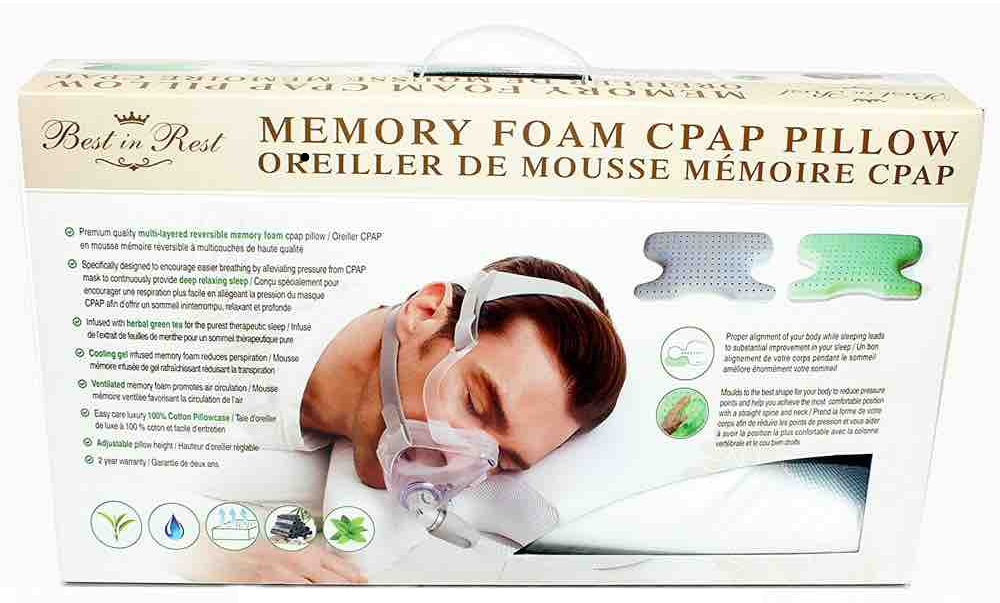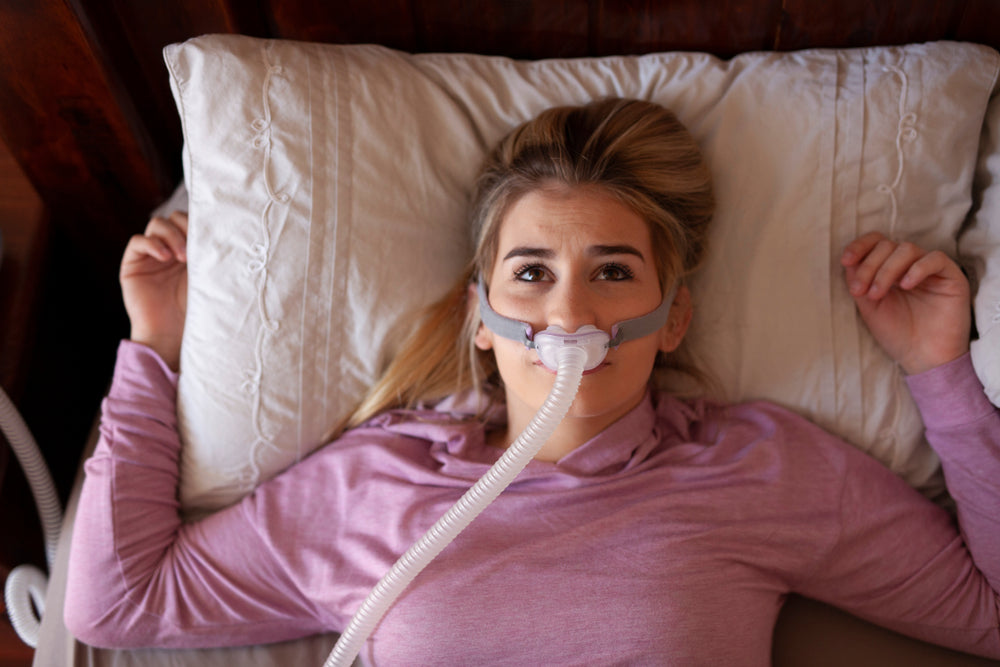How to Treat Sleep Apnea Without a CPAP Machine
If you have been on the receiving end of snoring complaints, have been waking up gasping for breath, or have been feeling excessively sleepy during the day, sleep apnea may be responsible for these symptoms.
Quick rundown: What is Sleep Apnea?
A potentially serious sleep disorder, sleep apnea causes breathing to stop and start throughout the night. As a result, the sufferer gasps for air and wakes up frequently throughout the evening, which results in restless sleep and waking up without feeling rested.
The most common sleep-related breathing disorder is obstructive sleep apnea. In obstructive sleep apnea, the muscles in the back of the throat relax to the point where it prevents normal breathing from occurring — this relaxation restricts the airway and causes the momentarily pauses in breathing mentioned earlier.
CPAP: The Most Common Treatment
If you or one of your loved ones have been diagnosed with obstructive sleep apnea, then chances are you are searching for a treatment plan to get back on track. You have likely heard of continuous positive airway pressure (CPAP). Sleep apnea is most commonly treated with CPAP therapy. A CPAP machine maintains constant air pressure, providing air via a tube and mask. This continuous air delivery keeps the upper airway open and uninterrupted, regulating your breathing throughout the night. Using a CPAP machine can help eliminate sleep apnea and improve breathing patterns and sleep quality. Unfortunately, several severe health complications are associated with sleep apnea. By using a CPAP machine every night, it is possible to prevent and, in some cases, reverse these health issues.
Are there CPAP alternatives?
Although CPAP is a very effective treatment for most people, some have apprehensions about using the device. For some, the price can be a deterrent, while others may have experimented with a CPAP machine and found it uncomfortable. If this is the case for you, we recommend looking at this CPAP mask fitting guide to see if there's anything you can do to feel more comfortable with your CPAP machine before giving up on the treatment altogether.
Lifestyle changes
Lifestyle factors can contribute to the development of obstructive sleep apnea. In some cases, lifestyle changes can reduce and even stop sleep apnea symptoms. Some doctors may recommend lifestyle changes only; however, this is only the case if your sleep apnea is mild or less persistent. Among the lifestyle changes may be; losing body weight, reducing alcohol or sedative intake, quitting smoking, or managing allergies. Making these changes may help improve mild sleep apnea. However, for severe sleep apnea, just making these changes to your lifestyle will likely not be enough to eliminate sleep apnea symptoms.

Surgery
Despite not being a standard treatment for sleep apnea, surgery is an option selected by some sleep apnea patients. Going down this route means speaking with a doctor or otolaryngologist to see if this fits you. Surgery is usually performed in rare cases when a patient cannot tolerate the permanent CPAP treatment (which requires nightly use) and prefers surgery to correct anatomical obstructions. It's important to note that surgically eliminating sleep apnea symptoms is not always possible, and surgery is usually reserved as a last resort for adults with OSA.
Making CPAP more comfortable
Although there are other options to treat sleep apnea, CPAP machines are safe and predictable and offer the most effective treatment. Over our years in the industry, we have often found that those who had a poor experience with a CPAP device previously would have a renewed opinion after updating their mask to fit them properly, a machine that works for them and any appropriate accessories. Another critical factor is adjusting the settings to suit them better, including modifying after weight loss, weight gain, or other new lifestyle changes.
Several accessories can help make CPAP therapy a more comfortable experience, for example, CPAP pillows which, in addition to cushioning your head, ease the movement of your CPAP mask while you are sleeping.

To put it simply, don't give up too quickly on CPAP treatment; it really is the best option and most convenient treatment plan. If you have exhausted your attempts on CPAP, then, by all means, look into the other options, but if you are only in the beginning stages, then stick with it. You will likely find a way to make CPAP work for you. If you are still unsure, perhaps trialing a CPAP machine or participating in an at-home sleep study could be a suitable option.
From this article, we hope you learnt more about the treatment options for sleep apnea. Fortunately, sleep apnea is very treatable; it's just a matter of finding the proper sleep apnea treatment for you. Reach out to a sleep specialist, and we will help you back to a good night's sleep.



